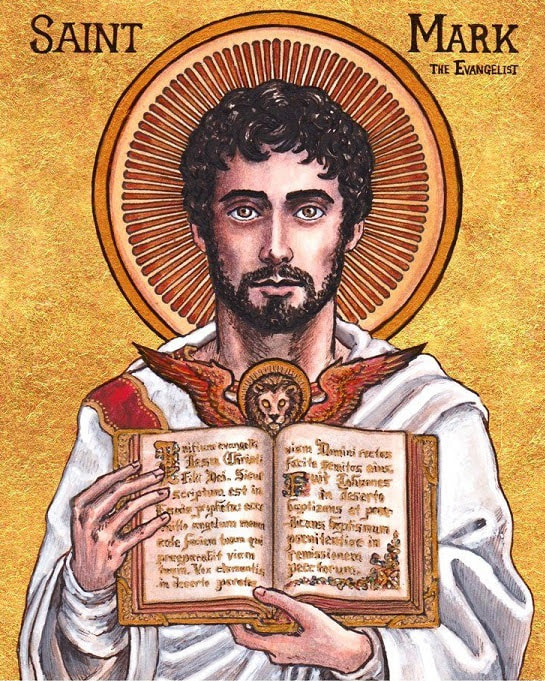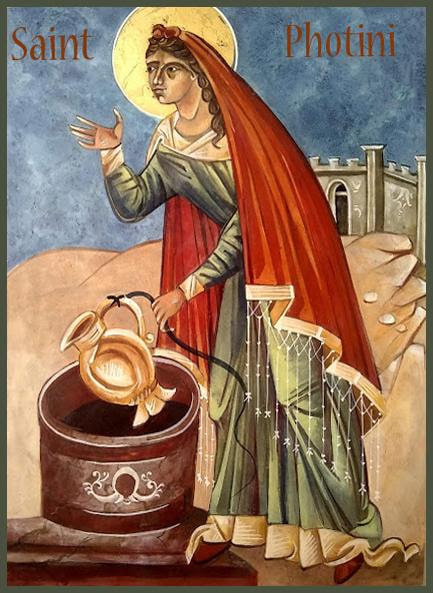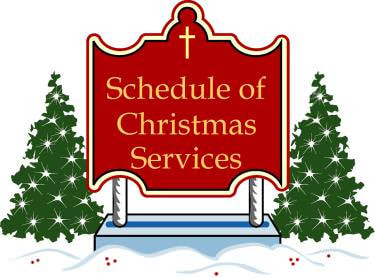|
Rev. Charles Hoffacker St. Matthias the Apostle, whose feast is today, was not one of the original twelve apostles. He was elected to fill the vacancy left by the death of Judas. His story is told in Acts 1:15-26, a reading assigned for this feast. “Apostle” means someone who is sent. Their number soon exceeded twelve with the addition of apostles such as St. Paul and St. Barnabas.
The Nicene Creed includes four “notes” that describe the Church as one, holy, catholic, and apostolic. According to the Prayer Book Catechism or Outline of Faith, the Church is apostolic “because it continues in the teaching and fellowship of the apostles and is sent to carry out Christ’s mission to all people.” The Catechism defines this mission as “to restore all people to unity with God and each other in Christ.” How the Church does this is “as it prays and worships, proclaims the Gospel, and promotes justice, peace, and love.” Through whom then does the Church carry out its mission? Not through apostles alone. Not through bishops alone, although a bishop serves as apostle of a diocese. Instead, the Church “carries out its mission through the ministry of all its members.” All of us together. No exceptions.
1 Comment
Rev. Mary McCue Every year during Lent, I re-read a book of Lenten reflections and observations called, “Get Over Yourself: God’s Here!” Written by the Very Reverend Kate Moorehead, Dean of the Cathedral of St. John in Jacksonville, Florida, it’s a look at how we can use Lent to not just repent, but to also draw closer to God. It’s composed of advice, Scriptural quotes, her reflections on the quotes as a long-time priest and rector, and questions for further study and reflection.
For today, the chapter title is “Take Time to Be Alone.” The quote from Scripture is “Then they went to a place called Gethsemane, and Jesus said to his disciples, ‘Sit here while I pray.’” (Mark 14: 32). Rev. Moorehead muses on Jesus’ need to be both with people, and to withdraw by himself to pray. He prayed by himself and he also worshiped in synagogues. She writes that she believes that, like Jesus, we need to balance an inner life of prayer and thought with an outer life of communication and interaction. He balanced time alone with God and time serving God in the midst of people. She poses these questions for reflection:
Zachary Baker Rodes
Zachary Baker Rodes Today the Episcopal Church commemorates the lives of three incredible women in 19th century China and who each independently helped spread the Gospel in their native country. However, I wish to start with some history. Many may not know that the story of Christianity in China dates possibly to the 6th century, though certainly from the 8th century, which is documented on the Nestorian Stele. However, the Christian faith would be banned in 845 and was extinct in China by the end of 900s. But by the 1200s, Christianity would reappear in China thanks to both Mongol tribes who were Christian and European traders.
By the 19th century, Chinese Christianity was influenced by the Catholic and Protestant colonial missions, making the faith suspicious to the Chinese authorities. Agnes, Agatha, and Lucy all were born into Christian families and were from southwest China (Guizhou or Sichuan provinces if you know Chinese geography). Agnes’ story is one of incredible resiliency for she lost her parents young and when she married, her husband and his siblings never fully accepted her for her Christian beliefs. When her husband died, she was cast away from her husband’s family. She was taken in by a wealthy Christian Chinese widow and learned more about the faith. Agnes was subsequently “found” by Fr. Auguste Chapdelaine who asked to help teach to faith to Chinese families. Agatha would open a school for girls and Lucy would start university but had to drop out to care for her dying faither. She would eventually help in teaching women and children as well. I have no found any evidence that they knew each other, as they were born in a close time period and lives in relative proximity, but each would become catechists of the faith and die for their faith as a result. Lord Jesus Christ, who willingly walked the way of the cross: Strengthen thy church through the witness of thy servants Agnes Tsao Kou Ying, Agatha Lin Zhao, and Lucy Yi Zhenmei to hold fast to the path of discipleship even unto death; for with the Father and Holy Ghost thou livest and reignest, one God, for ever and ever. Amen. Rev. Charles Hoffacker Today is Ash Wednesday, the first of the forty days of Lent. One good practice for Lent—there are many—is to offer the Prayer of St. Ephrem each day. This prayer from the Syriac tradition has been translated into a long list of languages. In some churches it is accompanied by a pattern of bows and prostrations.
The saint for whom the prayer is named is known also as Ephraim. Born in Nisibis, he relocated late in his life to Edessa, both of which are now in Turkey. A teacher, poet, orator, deacon, and defender of the faith, he flourished in the fourth century. Called by the Syrians “the Harp of the Holy Spirit,” his hymns still enrich the liturgies of their churches. His sermons and poems often employ vivid and memorable imagery. During a severe famine, Ephrem distributed food and money to the poor and organized a sort of ambulance service for the sick. He died of exhaustion, brought on by his long hours of relief work. The Episcopal Church commemorates him on June 10. Here is the Prayer of St. Ephrem, slightly adapted from the translation by the American poet Scott Cairns. O Lord and Master of my life, remove from me this languid spirit, this grim demeanor, this petty lust for power, and all his empty talk. Endow your servant instead with a chaste spirit, a humble heart, long suffering gentleness, and genuine, unselfish love. Yes, O Lord and King, grant that I may confront my own offenses, and remember not to judge others. For you are—always and forever—blessed. Amen. Rev. Mary McCue
Zachary Baker Rodes Today’s Daily Office Gospel reading comes to us from Mark 10:32-45.
Verse 45 is well known and goes like this, “For the Son of Man came not to be served but to serve, and to give his life a ransom for many.” This phrase is the key Christological statement of Mark’s Gospel. The Son of Man, Jesus Christ, is a servant. In the reading, James and John ask Jesus if they could be seated next to him, “in your glory”. In fact, in a way the question is much more arrogant for they ask Jesus to do what they want. But it isn’t that easy, and he warns them that too will have to go through trials just like he is to go through because that is the way of servanthood. The other apostles get angry at James and John for even asking the question, but Jesus doesn’t scold any of them because none of them know that in order to lead and in order to be first, is actually to make oneself last and servant to all. And when Jesus says that “[he] give[s] his life a ransom for many”, this does not mean many and not all, but simply the many for whom the Gospel is written, which is all of us. But in all of us, our servanthood towards others can only happen when we put Jesus first and ourselves last. In this humility is the hope that God’s glory will be shown, and the Gospel fully taught and fully lived. Rev. Charles Hoffacker Today is the Epiphany, which the Book of Common Prayer (page 15) identifies as one of the seven principal feasts of our Church.
“Epiphany” comes from a Greek word meaning manifestation, and Jesus Christ is the one manifest. At his Nativity (December 25), Jesus is manifested to the Jewish people, represented by those in the Bethlehem stable, including the shepherds directed there by an angel who appears to them in the night sky (Luke 2:8-16). At the Epiphany (January 6), Jesus is manifested to Gentiles, represented by magi, proto-scientists perhaps, who are led westward by an extraordinary star and bring him strange gifts: gold, frankincense, and myrrh (Matthew 2:1-12). Matthew’s Gospel mentions three gifts, but does not say how many gift-givers there were. Some old Christian traditions identify more than three magi, complete with their names. Everybody in the New Testament world was either a Jew or a Gentile. Christmas and Epiphany thus testify that Jesus was manifest for everybody. To emphasize this point, Christian art sometimes presents the magi as people of diverse ethnicities. Meditating on the Epiphany can strengthen our commitment to being anti-racist people. Zachary Baker Rodes Today the Church commemorates the feast of Agatha of Sicily.
One of the most harrowing martyrdom stories of the early church, Agatha’s story is one of faithfulness and fortitude in the face of helplessness. She was born in the 3rd century and believed to have come from a noble family. At an early age, she dedicated herself to being a consecrated virgin. However, a Roman prefect was infatuated with her and would not stop making advances until finally he denounced her as a Christian. Unfortunately, it came to be that he would be both accuser and judge. She was sentenced to live at a brothel, but she still held steadfast against any sexual advances. She would be tortured then killed in 251. She is considered the patron saint of sexual assault and breast cancer survivors. While I am not a personal victim of sexual assault, it is helpful for me to know there is a saint who I can pray to and help others to learn about and pray to to help through such times of darkness. Almighty and everlasting God, who didst strengthen thy martyr Agatha with constancy and courage: Grant us for the love of thee to make no peace with oppression, to fear no adversity, and to have no tolerance for those who wouldst use their power to abuse or exploit; Through Jesus Christ our Lord, to whom with thee and the Holy Ghost be all honor and glory, now and for ever. Amen. M.J. Layton
|
Archives
May 2021
authorsThe Rev. Charles Hoffacker is a retired priest of the Diocese of Washington |




 RSS Feed
RSS Feed
